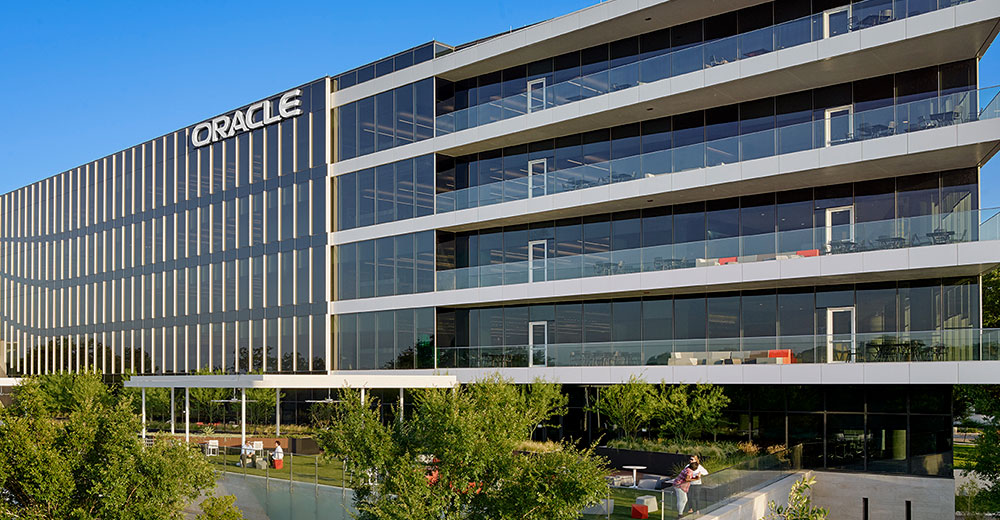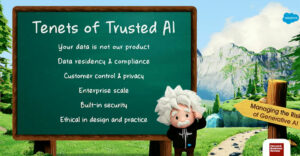Oracle kicks off CloudWorld in Las Vegas next week. While I am neutral on Las Vegas as a destination, it was plain to see 10 years ago that having both CloudWorld and Dreamforce in San Francisco in the span of roughly a month was asking a lot of the city.
I’ve often wondered why more tech vendors don’t use Chicago and its conference centers. It’s midway (I know) between coasts and, therefore, easier to fly into. But such decisions are above my pay grade, so Vegas it is.
Maybe the companies flipped a coin behind the scenes to see which would strike out for other environs, but then Oracle moved its HQ to Austin, Texas, presumably for the more favorable tax climate. So maybe moving the conference was just a natural outgrowth of business for Oracle. Whatever, it’s good Oracle decided on Las Vegas because they were already holding sessions on the street in San Francisco.
At any rate, Oracle, Las Vegas, and AI — and because Oracle is a front office/back office/infrastructure and have-it-your-way cloud company, you can expect to hear about more than AI + CRM or CX.
There’s a whole back office to consider, and application areas like supply chain should benefit hugely from AI. For instance, the recent supply chain tangle that greeted the end of Covid might have gone much better had AI been available. Maybe. I am sure AI will eventually be able to untangle Gordian’s Knot, but not just yet.
AI’s Next Leap?
I expect that much of the news emanating from Sin City will involve simply applying AI to existing application areas, but also, the big conference is traditionally a time when vendors open up about what’s coming. So, it wouldn’t surprise me to hear about customers piloting something involving AI that takes us beyond simple prediction.
At this point, I am only speculating because my NDA briefings from Oracle haven’t happened yet.
There is always some angst when a new technology like AI (or SaaS, for that matter) erupts on the scene. People mostly foresee possible disruptions in their own lives and livelihoods, and we’ve already had a glimpse of the worry over AI replacing us.
Several years ago, a couple of MIT professors, Erik Brynjolfsson and Andrew McAfee wrote “Race Against the Machine: How the Digital Revolution is Accelerating Innovation, Driving Productivity, and Irreversibly Transforming Employment and the Economy.” Their message, if I recall, was not that we shouldn’t worry but that things tend to work out.
Since the Industrial Revolution, when automated textile looms were the concern, we’ve faced major disruptions about every 50 to 60 years. I follow a school of economic thought that calls these intervals K-waves, and I think we are at the start of a new one. The last time, back in the 1970s, computers were beginning to penetrate daily life, and, except for social media, things worked out.
The Promise of General Intelligence
CloudWorld will be a great chance to see what the future could look like.
I understand that Oracle recently got a Top Secret clearance from the Pentagon. It was probably related to the company’s ongoing work with Microsoft and other leading tech firms to develop a 21st-century management system for the Department of Defense. I doubt we’ll hear more on that at CloudWorld.
Aside from generative AI, which is this year’s big deal, we’re heading toward an era of general AI or general (artificial) intelligence. We saw a glimpse of that when IBM’s Big Blue won Jeopardy. But Big Blue represents tons of equipment, far, far more than Ken Jennings weighs. I guess that means the next, next thing in AI will be some form of mobile intelligence.
General intelligence holds the most promise and the greatest risk because, done right, GI won’t ask for permission, though I hope it will be humble enough to ask forgiveness.
Here’s a question I hope they try to answer at CloudWorld: What industry-wide working groups are setting directions and standards for AI? We should elevate them if they exist or initiate them if they don’t.
Kinetic Data
Regardless, this still leaves front and back offices and all the places where AI assistance can help cut costs and leverage opportunities. If the relational database gave us a superior way to manage data, and business intelligence gave us ways to turn it into useful information reliably, AI seems to me to be the thing that keeps data in motion — call it kinetic data.
The more I see, the more I understand that keeping data and information in use is what ultimately adds value in a world where decisions are made in microseconds.
As far as things working out is concerned, it’s almost impossible to delineate all the new job niches that AI will open. But that’s what makes CloudWorld and Dreamforce so interesting. I have personally seen cocktail napkins scribbled at these conferences evolve into real products, and I think that’s the greatest sign of how things work out.


























































